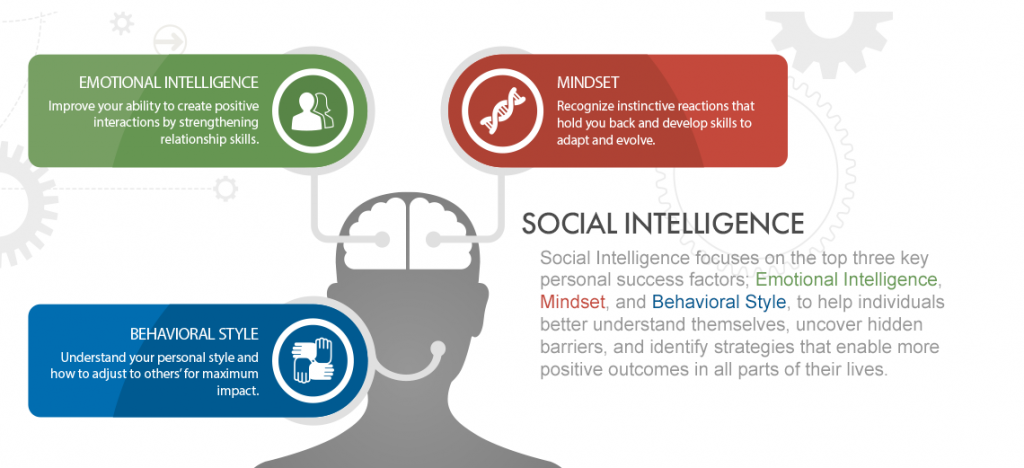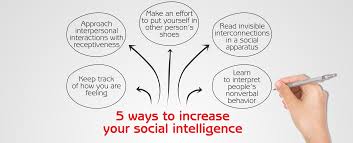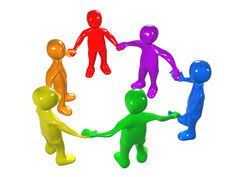Social intelligence is the capacity to know oneself and to know others. Social Intelligence develops from experience with people and learning from success and failures in social settings. It is more commonly referred to as “tact”, “common sense”, or “street smarts”.
What are the key elements of social intelligence?

- Verbal Fluency and Conversational Skills. You can easily spot someone with lots of SI at a party or social gathering because he or she knows how to “work the room.” The highly socially intelligent person can carry on conversations with a wide variety of people, and is tactful and appropriate in what is said. Combined, these represent what are called “social expressiveness skills.”
- Knowledge of Social Roles, Rules, and Scripts. Socially intelligent individuals learn how to play various social roles. They are also well versed in the informal rules, or “norms,” that govern social interaction. In other words, they “know how to play the game” of social interaction. As a result, they come off as socially sophisticated and wise.
- Effective Listening Skills. Socially intelligent persons are great listeners. As a result, others come away from an interaction with an SI person feeling as if they had a good “connection” with him or her.
- Understanding What Makes Other People Tick. Great people watchers, individuals high in social intelligence attune themselves to what others are saying, and how they are behaving, in order to try to “read” what the other person is thinking or feeling. Understanding emotions is part of Emotional Intelligence, and Social Intelligence and Emotional Intelligence are correlated — people who are especially skilled are high on both.
- Role Playing and Social Self-Efficacy. The socially intelligent person knows how to play different social roles — allowing him or her to feel comfortable with all types of people. As a result, the SI individual feels socially self-confident and effective — what psychologists call “social self-efficacy.”
- Impression Management Skills. Persons with SI are concerned with the impression they are making on others. They engage in what experts call the “Dangerous Art of Impression Management,” which is a delicate balance between managing and controlling the image you portray to others and being reasonably “authentic” and letting others see the true self. This is perhaps the most complex element of social intelligence.


